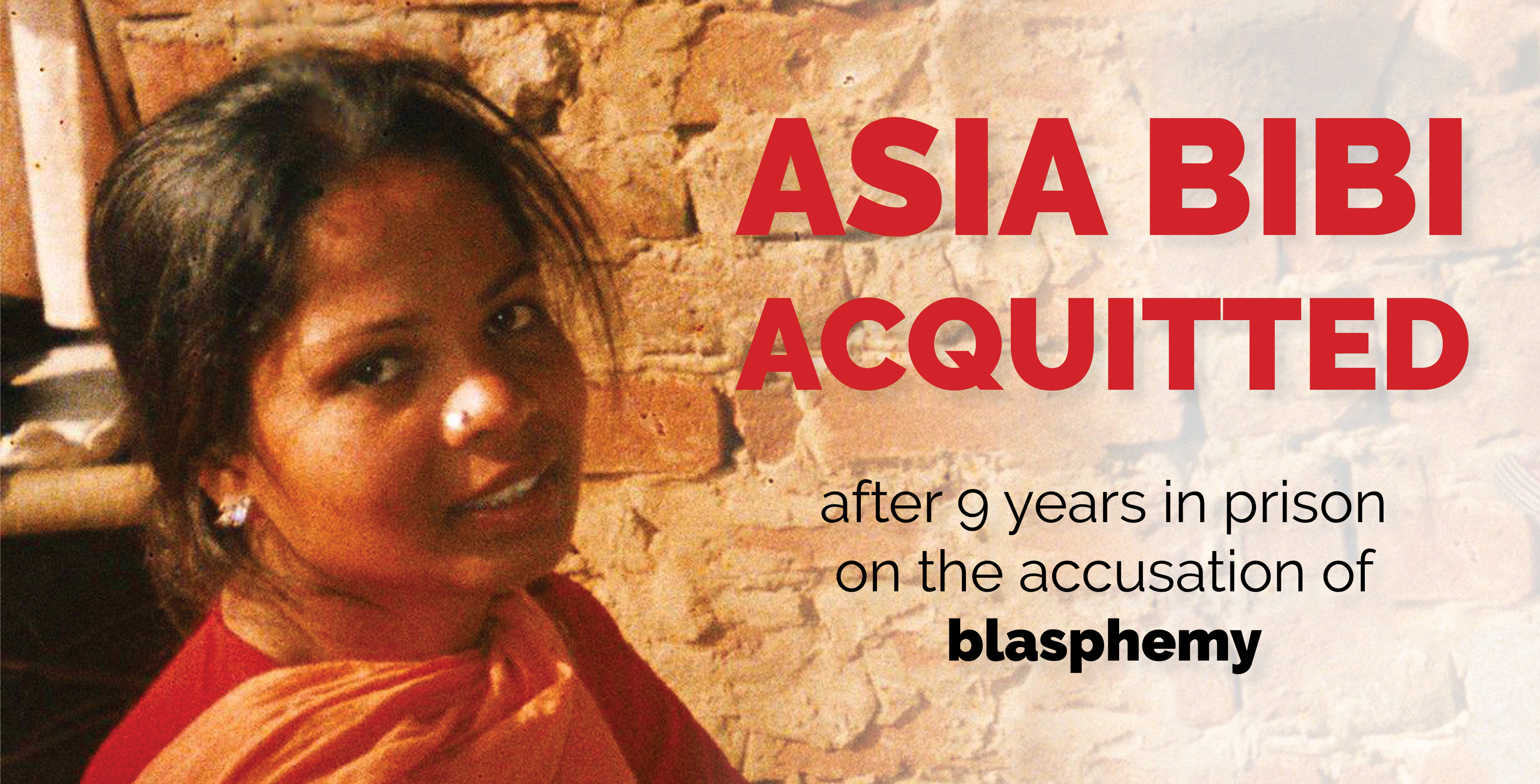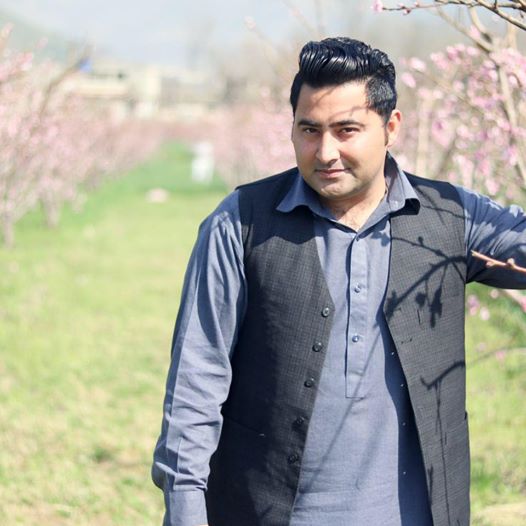One of the world’s most infamous convictions for ‘blasphemy’ has been overturned by the Supreme Court in Pakistan.
IHEU calls for “urgent reform” as the supreme court highlights colossal failures of justice in the lower courts.

Asia Noreen, commonly known as Asia Bibi, was convicted of ‘blasphemy’ in 2010, and sentenced to death by hanging — the only lawful means of carrying out the death penalty in Pakistan. She has been in jail for nine years, mostly in solitary confinement. There have been reports that she is showing signs of confusion and memory loss after her prolonged ordeal.
There had been a moratorium on the application of the death penalty since 2008, however it was revived for use in terrorism cases following the Peshawar school massacre in 2014, and the moratorium was fully lifted for all cases in 2015. Since then, those convicted of ‘blasphemy’ could in principle be hanged, and dozens of executions for other crimes have been held each year. This final appeal at the Supreme Court was Asia Bibi’s last chance for release.
Threat of violence for ‘blasphemy’
The court today said she could go free, although there have been repeated calls from international rights groups to protect the safety of those accused of ‘blasphemy’.

Mashal Khan, in a profile photo from his Facebook page, was killed by a ‘blasphemy’ mob in 2017
Vigilante violence based on ‘blasphemy’ accusations is frequent in Pakistan. Religious minorities including Ahmadis and Christians are sometimes targeted with malicious accusations.
Non-religious or alleged non-religious individuals have also been recurrently accused of ‘blasphemy’. In 2017 a student who called himself “the humanist” on Facebook, Mashal Khan, was lynched by fellow students at a university in Khyber Pakhtunkhwa province. Several alleged atheist activists and bloggers were arrested in 2017 in a ‘crackdown’ on atheism and blasphemy. Some remain in jail facing similar long ordeals to that of Asia Bibi. Another humanist activist known to IHEU, R Amjad, was forced to relocate internally after receiving death threats and blasphemy accusations in 2017. He is now seeking asylum in New Zealand.
The ‘blasphemy’ laws and their capital punishment remain popular in Pakistan, despite the association of these laws with extremist elements, false accusations, unjust convictions, and bloody violence including assassinations and lynch mobs.
Today’s ruling has already led to a number of protests, with police implementing strategic roadblocks to try to prevent large-scale demonstrations.
Malicious accusations and forced confessions
Asia Bibi, now 47, had worked as a farm laborer. In the incident that led to her prosecution she was hounded by fellow farm workers after apparently taking a sip of water from a cup she had fetched on a hot day. She is a Christian and those attacking her were Muslim, who said that her drinking from the same bowl was ‘unclean’. Assaulted at her home, threatened, and facing demands that she convert to Islam, she is reported at that moment to have ‘confessed’ to ‘blasphemy’.
The claim that she ‘confessed’ is widespread among those calling for Asia Bibi’s death in Pakistan. The Supreme Court today refuted this notion, and rounded on years of poor judicial process. The judgement includes a detailed reflection on the presumption of ‘innocent until proven guilty’, and judges conclude that the prosecution had “categorically failed to prove its case beyond reasonable doubt”. The case has all along been based on flimsy evidence, sometimes without proper procedures, according to today’s judgement. The judgement also notes that the alleged confession was obviously made under duress, delivered in front of a crowd that was “threatening to kill her”.
Need for “urgent reform”
The International Humanist and Ethical Union (IHEU) coordinates the End Blasphemy Laws coalition, calling for the repeal of all ‘blasphemy’ laws, and regularly intervenes at the UN and other international institutions against ‘blasphemy’ laws and accusations.
Andrew Copson, president of the IHEU, said today:
“This is good — if long overdue — news from Pakistan. We urge the government of Pakistan at the highest level to intervene to ensure the safety and security of Asia Bibi. She likely can never be safe in Pakistan and the authorities have an indisputable responsibility to protect citizens who face a threat to life that is abundantly clear and extremely serious.
“It must also be stressed that Asia Bibi’s tragic case is one among dozens of others. There are around 50 individuals still imprisoned on blasphemy charges, at least 17 facing possible death sentences.
“This case, reflective of so many others who still suffer in prison, urgently highlights the need for reforms. Defence lawyers and even lower court judges have all been threatened and face the real risk of a violent response should they be accused of responding to ‘blasphemy’ accusations with anything less than dogmatic fury and a presumption of guilt. As per today’s judgement, the presumption of guilt must be reversed, and as the supreme court itself has said in the past, there needs to be a re-think on criminal ‘blasphemy’ in Pakistan and prosecution of those who make malicious accusations or who incite violence against those who are accused.
“Blasphemy laws do not create social harmony or protect against hate, on the contrary they engender prejudice and spawn terror. This case must stand as a wake-up call for reform and repeal.”